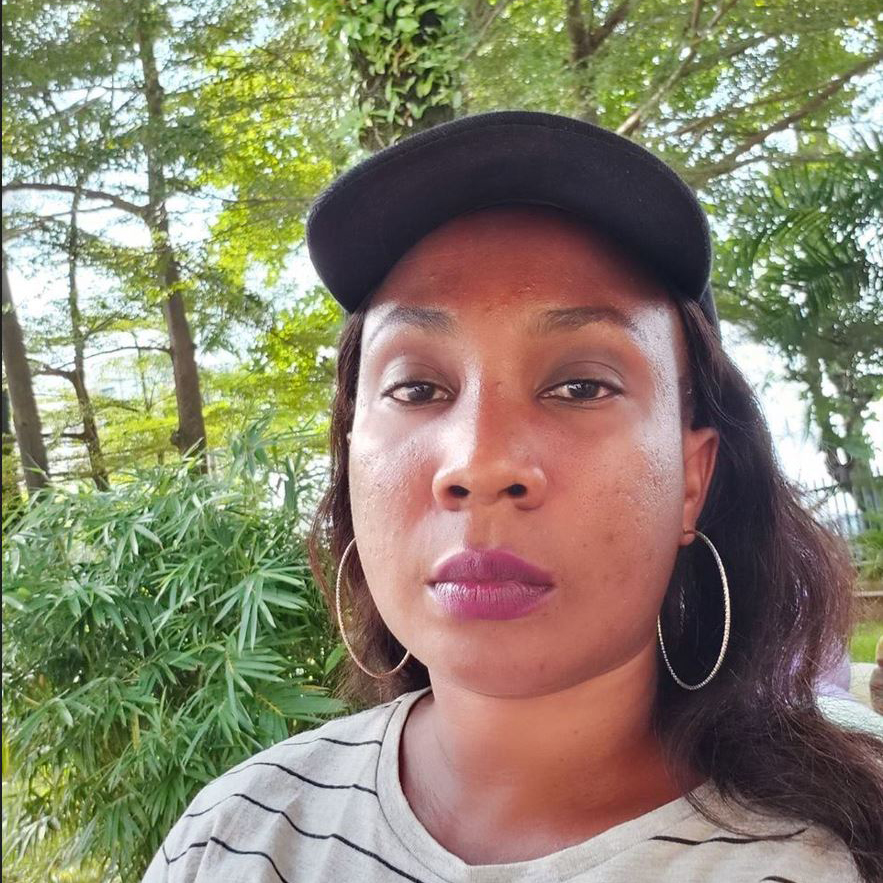Dr Bridget Bobadoye
Dr Bridget Bobadoye is worried about the bio-security threats in Africa, and is driven to find ways of detecting disease early.
She says “I embarked on this research because I saw the negative impacts that bio-security threats were causing on the African continent. I saw the way it was affecting every sphere of life regardless of economic status. The need to fill this gap of proper detection and surveillance of emerging infectious diseases on the African continent readily needs innovative tools to rapidly detect diseases in the environment before they occur on an epidemic scale. Because the environment is a shared component for both humans and animals to co-exist, it has to be the main channel through which we can assess if a disease is already present or not.
Bobadoye says she expects her “research will show the benefits of adopting a holistic, one health approach in responding to possible public health bio-security threats such as high-impact infectious diseases emerging at the interface between humans, animals and the environment.
She is confident that this research “will have great impact on health security and the mechanisms of curtailing the spread of re-emerging infectious diseases on the African continent”. She says there is insufficient understanding of “what mechanisms to put in place to implement a one-health approach and this research project will highlight innovative ways to prevent, detect, and respond to future infectious disease outbreaks.”
Emphasising why she is so concerned about bio-security threats, she says “the 2014 Ebola epidemic in West Africa was a big eye opener for all African countries as it ravaged every sphere of life and has continued to galvanize global attention and resources as the international community strives to eliminate this infectious disease. However, a the plethora of other hemorrhagic and enteric fevers such as monkeypox, Lassa fever, dengue, chikunguya fever etc revealed that there was a great need to create an African-led multidisciplinary forum of experts capable of working together with international partners to strengthen Africa’s preparedness and resilience in tackling such infectious disease outbreaks caused by emerging pathogens.
If she wins the JWO Award, Bobadoye “will develop a protocol to rapidly detect re-emerging infectious diseases and an easy adoptable mechanism to transparently report outbreaks when they occur. This will help to advance the knowledge and adoption of the Global Health Security Agenda (GHSA) International Health Regulations (IHR) One Health approach in Africa. This will help to prevent or mitigate the impact of naturally-occurring outbreaks and intentional or accidental releases of dangerous pathogens from forest ecosystems.”
On the broad environmental front, Bobadoye says that “deforestation … can be labelled as the most devastating environmental and conservation challenge facing Africa aside from climate change. Forests in Africa are disappearing at an alarming rate and this is fuelling high spill-over rates of emerging infectious diseases into the environment.”
She says the Great Green Wall “is a fine example of the right thing to do to combat climate change and deforestation as it has great economic and ecological benefits for Africa at large”. The GGW is an initiative which has as its ambition “to restore 100 million hectares of currently degraded land; sequester 250 million tons of carbon and create 10 million green jobs by 2030.”
She says that what gets her up in the morning is “my kids (aged 6 and 4) … sounds like a joke right!” But, “apart from my funny response … it’s my burning desire to become the first female president of my country and I constantly strive in ways that seem right to achieve it.”
Her burning desire extends further to an “indulgence for spicy peppery foods”, and she says she has “a secret obsession to travel to space on Elon Musk’s Space X. I know some day I will.”
Bridget Bobadoye is Principal Research Fellow/Head of insect ecology and management unit at the Forestry Research Institute of Nigeria.
She obtained her B.Tech. Honours in Agronomy from the Ladoke Akintola University of Technology in Nigeria, her Masters in Entomology from the University of Ibadan in Nigeria, and her PhD in Entomology from the University of Nairobi.




